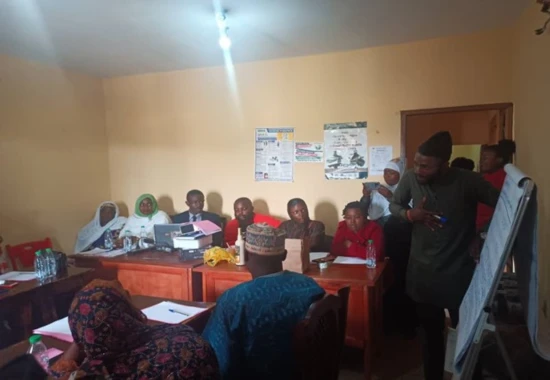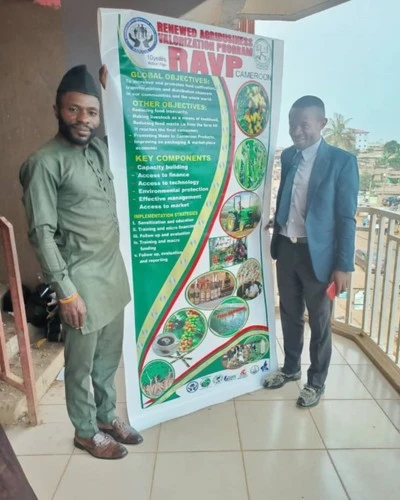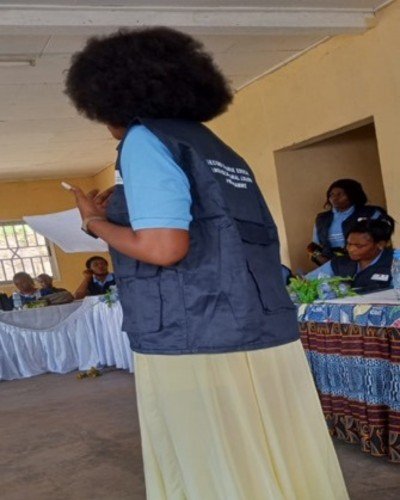RAVP Project
- Home
- RAVP Project
The Renewed Agro-Business Valorization Program (RAVP) (Ongoing Project)
Cameroon constitutes the breadbasket of food production within the equatorial sub-sector of the African continent. The agricultural sector in Cameroon is amongst the main occupations with over 70% of citizens involved and contributes enormously to the country’s economy. The lack of access to adequate amounts of safe and nutritious food is a public health concern worldwide, particularly in Cameroon.
Due to its agro-ecological diversity, Cameroon has great potential for agricultural production to contribute towards its over 25 million people and beyond, thus contributing towards feeding the world’s 9 billion people. The importation of large quantities of food that are produced in Cameroon has become worrisome.
The main objective was to increase and promote food cultivation, transformation, and distribution channels in our communities and the whole world.
Objectives of RAVP
Other Objectives of RAVP included
- Reducing food insecurity,
- Making livestock as a means of livelihood,
- Reducing food waste i.e from the farm till it reaches the final consumer;
- Promoting Made In Cameroon Products,
- Improving market-place economic
In other to achieve these objectives, RAVP designed it to be run in phases and in zones for effective management.
The key components of the program included;
- Capacity building
- Access to finance
- Access to technology
- Environmental protection
- Effective management
- Access to market
The project will be executed by RABCCUL through her partners like CAMCCUL, MINADEL, MINIPAT, SMEEPSA, (and other local partners like SOPISDEW, ASDEPCO, RECOP LTD and her international partners)
Sustainability of the Program
As an Implementing partner, ASDEPCO participated in enhancing the sustainability of the program, and in doing this the following was done:
- Sensitization and education
- Training and micro-financing
- Follow-up and evaluation
- Training and macro funding
- Follow-up, evaluation, and reporting



ASCEPCO CEO training the Muslim communities around Bamenda
Training of community volunteers and mentors to support, guide, and serve as role models for women and young women. (Under the Second Chance Education and Vocational Learning Program)
On November 18th, 2022, ASDEPCO engaged in the training of community volunteers and mentors to support, guide, and serve as role models for women and young women
Objectives of RAVP
One of the beneficiaries Tanifom Linda had the following to report about the training.
First of all I want to thank the Head of ASDEP-CO Cameroon for giving me the opportunity to attend this seminar. The seminar was very interesting and gave me the opportunity to learn many issues concerning Volunteerism, mentorship, and coaching women and young girls. As a trainer who needs to do research in the future, I find it a very enriching experience for me. I will explain below some elements in the seminar.
Diving into the activities of the day proper; The Training Community Volunteers and Mentors to Support, guide,and serve as role models for women and young girls, started with the first session on conceptual clarifications about, Volunteerism, mentorship And coaching and their challenges.
Sustainability of the Program
Session two followed with the opportunities for women and young girls in the Northwest region of Cameroon areas of Education, Entrepreneurship and Vocational Training such as ;
- Business Ideas
- Writing business projects and dropping at the youth’s affair.
- Organization of scholarship
- Exploit other job market
- See a problem and create a solution.
The training ended with a session on;
- Skills for Successful Mentorship
- Stages in mentoring relationships
- Designing an effective Volunteerism and mentorship strategy for women and young girls such as; knowing the mentee, her goals, challenges, and expectations.
- Benefits of mentoring to young girls and women
- Mentoring best practices.
Finally were, restitutions and question and answer sessions with the facilitators and participants. A closing remark was given by BONET appreciating the participants for collaborating and making the seminar participatory. Snapshots were taken outside and then a table was set up for lunch as everyone eat and dispersed.




